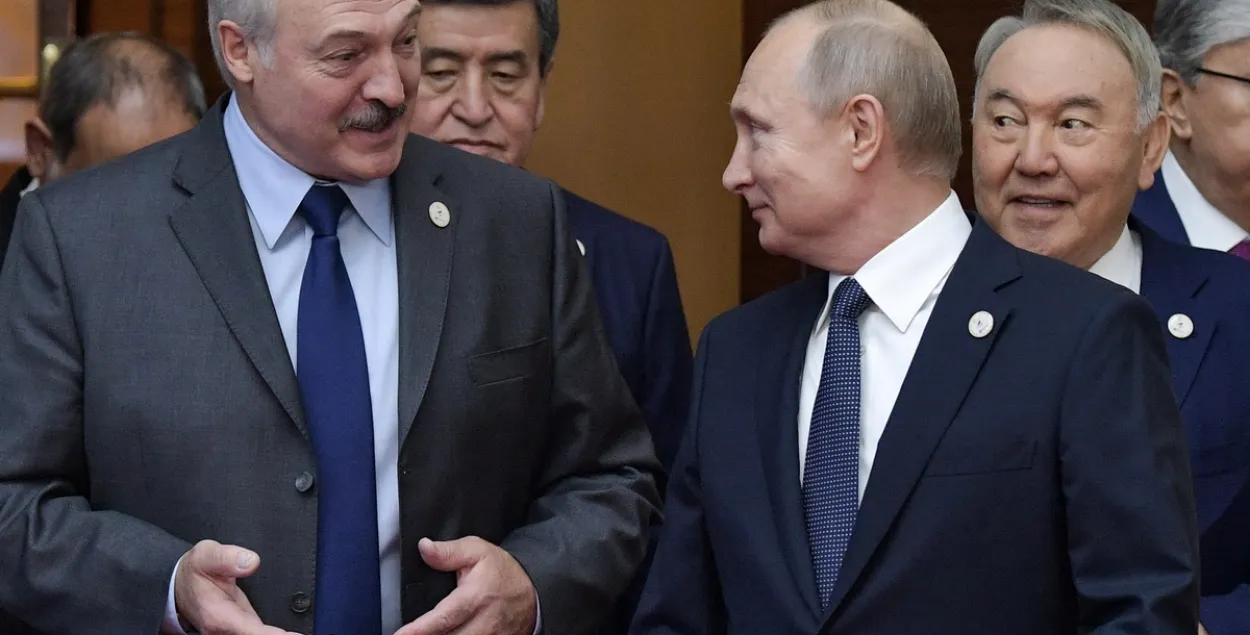Lukashenka signs two decrees on EAEU with undisclosed content

Lukashenka and Putin at the EEU summit / Reuters
On Wednesday, May 29, the National Legal Internet portal published two decrees of the Belarusian President on the Eurasian Economic Union operations. The first decree is about changes to the Treaty on the Eurasian Economic Union of May 29, 2014 (regarding the formation of a common electricity market of the Eurasian Economic Union). The second decree is about the draft Agreement on the traceability of goods imported into the customs territory of the Eurasian Economic Union. The texts of both documents are not disclosed.
Euroradio asked economist Leanid Frydkin about the potential secrets contained in these documents and whether they are related and why their text is not accessible to anyone except the officials.
The expert immediately stressed that he did not see any connection between the decrees, although they were issued simultaneously. “The agreement on traceability mechanisms of goods imported into the EAEU provides for the exchange of information from national traceability systems to ensure control over the circulation of goods from the list approved by the Council of the Eurasian Economic Commission (presumably, it is alcohol, cigarettes, shoes, household appliances, fur products, and in the future -- meat and dairy products, tea, coffee). The agreement also establishes requirements for national traceability systems,” Frydkin explained.
As for the protocol on the single electricity market, the expert recalled that under the Treaty on the EAEU it was planned to create conditions for organizing centralized trading in electricity and for trading under free bilateral agreements by July 2019.
“To do this, electronic systems for trading electricity under fixed-term contracts and day ahead should be created, as well as an information system for the common electricity market of the EAEU which should be operational by 2025. In addition, it was planned to develop common rules for trade in electricity, rules for access to the services of natural monopolies in the power industry, rules for determining and distributing the transmission capacity of interstate power lines, etc. But according to rumors, they don’t have time to create it in time,” Frydkin said.
The protocol on the unified electricity market which Euroradio has access to does not mention any timing for its launch.
Already after the publication of the article, it became known that the two documents in question were signed by the EAEU countries at the summit in Astana on May 29.


















